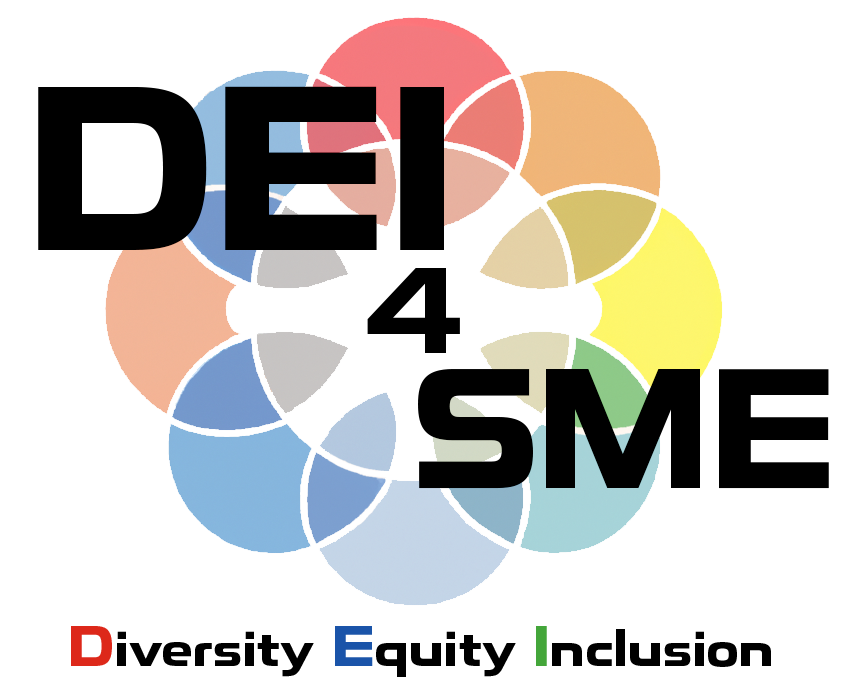PART 1:
Managing Diversity in Smaller European Businesses: Employee perspectives
How inclusive are workplaces in Europe today and for whom? This report presents findings from a 2024 cross-national survey examining perceptions of diversity, equity, and inclusion (DEI) across Austria, Finland, Germany, and Lithuania. With 304 respondents primarily working in small and medium-sized enterprises (SMEs), this report explores how DEI is embedded in day-to-day work experiences.
Despite growing awareness of DEI as a priority, the results reveal inconsistencies between countries, identity groups, and policies & practices. While some companies by respondents were seen as legally compliant, this did not always transform in advanced DEI policies, and in fact significant number of employers across all countries were considering companies to be unaware of basic DEI obligations. Lack of dedicated personnel, accountability structures, or mechanisms to monitor diversity outcomes was widespread and contributed to the disconnection between DEI efforts and the everyday reality of employees.
Bias and barriers were reported across key stages of employment. No single country companies were considered to have inclusive practices across all identity groups, and marginalized individuals consistently reported reduced access to development, recognition, or advancement. DEI training and mentoring were rare, and leadership remained less diverse than general staff roles. Despite this, over half of respondents felt free to express their identity at work, indicating resilience, but highlighting the complex, uneven nature of inclusion.
Equity measures such as quotas or blind recruitment were seldom used. Instead, organizations, according to respondents, favoured general support policies, which do not necessarily address the deeper structural inequities identified in the data. Many employees were unaware of any DEI measures at all, suggesting that even well-intended efforts often fail to engage or impact those they are designed to support.
Taken together, the findings challenge the notion that DEI can be managed through broad, universal policies. They underscore the need for visible, identity-specific, and measurable DEI strategies particularly in SMEs, where flexible structures offer unique opportunities for inclusiveness. This report offers an overview of the current gaps and a roadmap for including diversity, equity, and inclusion into the core of organizational activities. By utilizing observed experiences of the employees working in the European firms in target countries, this report provides specific recommendations for managers, especially those leading smaller firms.
Key words: Diversity, equity, inclusion, report, SME, small business, employees, underrepresented groups, social sustainability, DEI, EU, and Europe.
- Kiverä, O. A., Šilenskytė, A., & Delecour, T. (2025). Managing Diversity in Smaller European Businesses: Employee perspectives. Zenodo. https://doi.org/10.5281/zenodo.15585290
